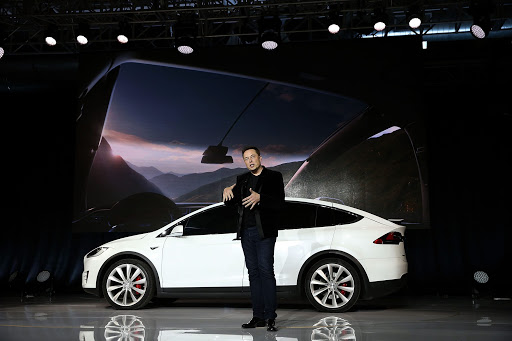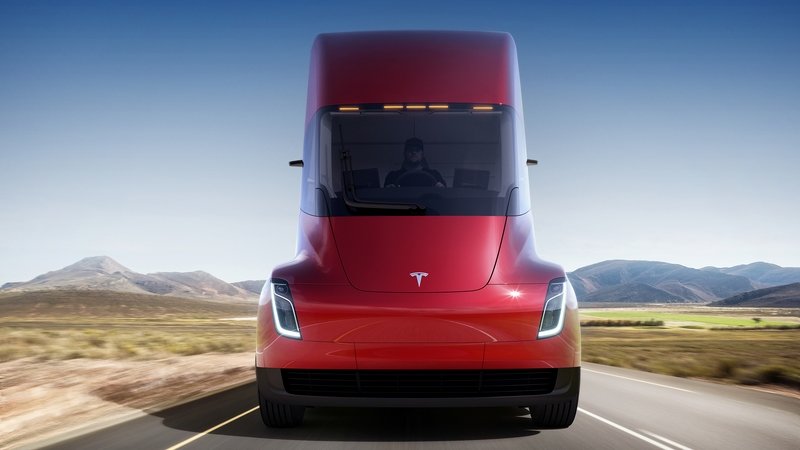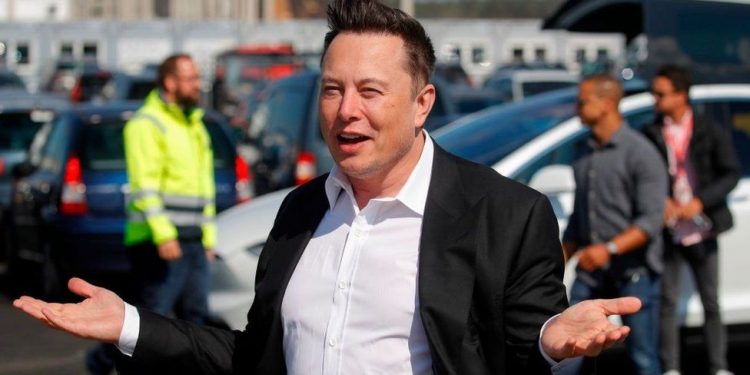Tesla has reported surging profits, despite shortages of semiconductor chips and congestion at ports hampering production. Sales rose to $12bn (£8.6bn) in the three months to the end of June, up from $6bn a year ago, when its US factory was shut down.

The electric carmaker said it delivered a record 200,000 cars to customers in the same period. It added that public support for greener cars was greater than ever. The company, led by billionaire entrepreneur Elon Musk, reported on Monday that profits soared off the back of strong sales.
Profits for the second three months of the year were $1.1bn, up from $104m last year, bolstered by sales of its cheaper Model 3 sedan and Model Y.

Earnings: $1.45 vs 98 cents per share adjusted expected, according to Refinitiv
Revenue: $11.96 billion vs $11.30 billion expected, according to Refinitiv
The company reported $1.14 billion in (GAAP) net income for the quarter, the first time it has surpassed $1 billion. In the year-ago quarter, net income amounted to $104 million.

Overall automotive revenue came in at $10.21 billion, of which only $354 million, about 3.5%, came from sales of regulatory credits. That’s a lower number for credits than in any of the previous four quarters. Automotive gross margins were 28.4%, higher than in any of the last four quarters.
In an update to investors on Monday, Tesla said: “Public sentiment and support for electric vehicles seems to be at a never-before-seen inflection point. “We continue to work hard to drive down costs and increase our rate of production to make electric vehicles accessible to as many people as possible.”
Tesla added that how quickly it could produce cars throughout the rest of the year would depend on the supply of key parts of its vehicles, with demand at “record levels”.
On a call with financial analysts on Monday, Mr Musk said: “At this point, I think everyone can agree, electric vehicles are the only way forward.”

Mr Musk said during the call that the global chip shortage “remains quite serious” and manufacturing would hinge on this “slowest part of the supply chain”. He also described late-night calls with suppliers in an attempt to resolve shortages.

As a result, there were growing waiting times for Tesla cars, especially across Europe, the company said in its results. It will look to start production at its new Berlin “gigafactory” as soon as possible. It has been plagued by delays, although the company bills it as “the most advanced high-volume electric vehicle production plant in the world”.
It will ramp up the manufacturing of its cars at its California hub in the meantime. Mr Musk was also reportedly seen visiting Luton earlier this year, sparking rumours he may be considering a Tesla factory in the UK.
Other car giants such as Ford and General Motors have been forced to suspend production temporarily in some US factories, having been hit by the global shortage of semiconductors.
Profits at Tesla in the second quarter were also dented, however, by other items such as investments in the cryptocurrency Bitcoin. It invested heavily in the digital currency previously. But it stopped taking Bitcoin as a form of payment earlier this year because of Mr Musk’s concerns about the environmental impact of Bitcoin mining, which uses huge amounts of electricity.
The company reported a $23m loss on its Bitcoin investments on Monday, although its chief executive recently signaled it might accept it again in future.















